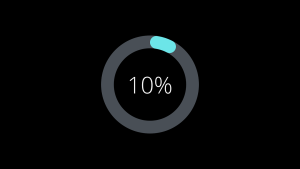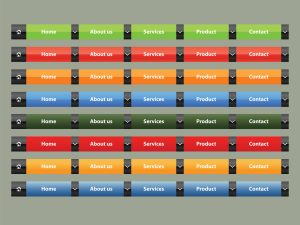Running a successful acupuncture practice requires more than just clinical expertise—it demands an online presence that works. Your website is often the first impression potential patients have of your practice, and if it’s not designed correctly, you risk losing both visibility in search rankings and trust from visitors.
Unfortunately, many marketing consultants and website “gurus” are offering misguided advice to acupuncturists, often for a high price, without delivering results. In some cases, these recommendations can actively harm your website’s ability to rank on Google and convert visitors into patients. This article breaks down common bad advice that’s hurting acupuncture websites and explains what actually works.
The Real Cost of Following Bad Marketing Advice
 Many acupuncturists have been led to believe that marketing consultants are essential for online success. While some experts genuinely understand SEO and website strategy, many so-called gurus provide advice that is not only ineffective but also detrimental.
Many acupuncturists have been led to believe that marketing consultants are essential for online success. While some experts genuinely understand SEO and website strategy, many so-called gurus provide advice that is not only ineffective but also detrimental.
These consultants often charge hefty fees while implementing strategies that contradict Google’s guidelines, mislead website visitors, and disrupt the patient booking process. Their advice often leads to:
- Poor search rankings due to missing or poorly structured content.
- Frustrating user experience (UX) that confuses potential patients.
- A lack of conversions, meaning fewer patients book appointments.
If your website isn’t ranking well or isn’t bringing in new patients, there’s a good chance you’ve fallen victim to one of these misguided strategies.
Common Bad Web Design Practices That Harm Acupuncturists
1. Over-Simplified Website Design That Lacks Text Content
 Some marketing consultants promote the idea that acupuncture websites should be minimalistic to the extreme. They suggest removing large sections of text and replacing them with just a couple of images. While simplicity in design is important for usability, Google relies on text to understand what your website is about.
Some marketing consultants promote the idea that acupuncture websites should be minimalistic to the extreme. They suggest removing large sections of text and replacing them with just a couple of images. While simplicity in design is important for usability, Google relies on text to understand what your website is about.
If your homepage, service pages, or blog lack well-structured content with relevant keywords, your website will struggle to rank in search results. AcuPerfect Websites has been building acupuncture websites since 2011, and we’ve consistently seen that content-rich pages rank higher and attract more visitors than those with little to no text.
2. Misleading SEO Tactics That Don’t Work
 Some consultants still push outdated SEO tricks that Google has long since penalized. These include:
Some consultants still push outdated SEO tricks that Google has long since penalized. These include:
- Keyword stuffing: Cramming as many keywords as possible into a page, making it unreadable.
- Invisible text: Placing keywords in white text on a white background to try and manipulate rankings.
- Buying backlinks: Paying for low-quality links in an attempt to boost SEO.
Google’s algorithm is smart enough to detect these tactics, and using them can result in your website being pushed down in rankings—or even removed from search results entirely. A real SEO strategy involves naturally integrating keywords, structuring content for readability, and earning backlinks through valuable content.
3. Renaming Pages in Ways That Confuse Google
 Some marketing gurus recommend changing standard website pages to make them sound more unique. A common example is renaming the Testimonials page to Patient Success Stories. While this might sound creative, it actually hurts SEO because Google recognizes “testimonials” as a common search term but doesn’t associate “patient success stories” with reviews.
Some marketing gurus recommend changing standard website pages to make them sound more unique. A common example is renaming the Testimonials page to Patient Success Stories. While this might sound creative, it actually hurts SEO because Google recognizes “testimonials” as a common search term but doesn’t associate “patient success stories” with reviews.
Additionally, some consultants advise acupuncturists to rewrite patient testimonials into exaggerated success stories, often without patient consent. Not only is this unethical, but it also violates trust. If a patient discovers their words have been altered or fabricated, they may lose confidence in your practice.
4. Overuse of Pop-Ups and Distracting Features
 While pop-ups can be useful in moderation (such as for lead capture forms), excessive or intrusive pop-ups can make your website frustrating to navigate. Many acupuncturists have been told to use aggressive pop-ups that:
While pop-ups can be useful in moderation (such as for lead capture forms), excessive or intrusive pop-ups can make your website frustrating to navigate. Many acupuncturists have been told to use aggressive pop-ups that:
- Appear immediately upon entering the site.
- Block content until dismissed.
- Reappear repeatedly even after being closed.
Google penalizes sites with intrusive pop-ups on mobile devices, and potential patients may leave your site out of frustration.
5. Ignoring Local SEO and Location-Based Pages
 Some consultants oversimplify the approach to SEO by focusing only on generic acupuncture keywords and ignoring location-based search optimization. This is a huge mistake. Most patients search for acupuncturists using terms like:
Some consultants oversimplify the approach to SEO by focusing only on generic acupuncture keywords and ignoring location-based search optimization. This is a huge mistake. Most patients search for acupuncturists using terms like:
- “Acupuncturist near me”
- “Acupuncture in [city name]”
- “Best acupuncture clinic in [location]”
If your website doesn’t have dedicated pages optimized for your city or service areas, you won’t appear in local search results. AcuPerfect Websites ensures that every site includes well-optimized location pages to maximize visibility.
6. Using Slow-Loading Website Templates
 Many gurus push website templates that are visually complex but load slowly. Common culprits include:
Many gurus push website templates that are visually complex but load slowly. Common culprits include:
- Large, unoptimized images.
- Excessive animations and videos.
- Bloated themes with unnecessary code.
A slow website negatively impacts both SEO and user experience. Google ranks fast-loading sites higher, and patients are more likely to leave if a site takes too long to load.
7. Removing Essential Contact Information from the Homepage
 Some marketing consultants claim that phone numbers and email addresses should be hidden behind contact forms to make the site look “cleaner.” This creates unnecessary friction for potential patients trying to reach you.
Some marketing consultants claim that phone numbers and email addresses should be hidden behind contact forms to make the site look “cleaner.” This creates unnecessary friction for potential patients trying to reach you.
Your phone number, email, and address should be prominently displayed on your homepage and every page of your site to ensure easy access.
8. Failing to Use Google Business Profile and Reviews Properly
 A common mistake is not integrating Google Business Profile (GBP) with your website. Your GBP listing directly affects local SEO rankings and helps you show up in Google Maps searches.
A common mistake is not integrating Google Business Profile (GBP) with your website. Your GBP listing directly affects local SEO rankings and helps you show up in Google Maps searches.
Some consultants also advise manipulating or fabricating reviews, which violates Google’s guidelines and can get your profile suspended. Authentic reviews build trust and improve rankings over time.
9. Bad Mobile Optimization Practices
 Many gurus overlook mobile optimization, assuming that desktop design is enough. This is a major problem because most acupuncture patients search for services on their phones. If your site isn’t fully optimized for mobile—meaning fast load times, responsive design, and easy navigation—you’re losing potential patients.
Many gurus overlook mobile optimization, assuming that desktop design is enough. This is a major problem because most acupuncture patients search for services on their phones. If your site isn’t fully optimized for mobile—meaning fast load times, responsive design, and easy navigation—you’re losing potential patients.
10. Overcomplicating Navigation and Menus
 Some marketing consultants try to get fancy with navigation by using non-standard menus, excessive dropdowns, or hidden navigation elements. This can confuse visitors and increase bounce rates.
Some marketing consultants try to get fancy with navigation by using non-standard menus, excessive dropdowns, or hidden navigation elements. This can confuse visitors and increase bounce rates.
Your site’s navigation should be simple and intuitive, ensuring that visitors can find the information they need within one or two clicks.
11. Not Aligning Website with Branding and Clinic Experience
 A strong online presence should reflect the experience a patient has when visiting your clinic. Some consultants use off-brand colors, generic stock images, or inconsistent messaging, creating a disconnect. Consistent branding across your website and clinic enhances trust and credibility.
A strong online presence should reflect the experience a patient has when visiting your clinic. Some consultants use off-brand colors, generic stock images, or inconsistent messaging, creating a disconnect. Consistent branding across your website and clinic enhances trust and credibility.
12. Prioritizing Style Over Functionality
 Some marketing consultants make the mistake of prioritizing style over functionality when designing websites. While aesthetics are important, functionality should always be the primary focus. Consultants who push highly stylized websites with elaborate fonts, hard-to-read layouts, or distracting visuals can create a website that is difficult to use.
Some marketing consultants make the mistake of prioritizing style over functionality when designing websites. While aesthetics are important, functionality should always be the primary focus. Consultants who push highly stylized websites with elaborate fonts, hard-to-read layouts, or distracting visuals can create a website that is difficult to use.
A clean, well-structured site with clear calls to action (e.g., “Book an Appointment”) is far more effective than an overly designed site that sacrifices usability. Visitors should be able to navigate the site easily and find the information they need quickly. If the website is difficult to use, visitors are more likely to leave without taking any action.
Next Step and Taking Action
 Stick with Proven Web Strategies
Stick with Proven Web Strategies
Marketing consultants who don’t understand acupuncture, SEO, or patient behavior can do more harm than good. Following bad advice can result in lower search rankings, frustrated users, and fewer new patient bookings.
Get Professional Support
AcuPerfect Websites has been building acupuncture websites since 2011, and we know exactly what works. Our sites are designed with SEO best practices, easy navigation, and conversion-focused layouts—ensuring that your practice ranks well and attracts new patients.
If you’ve been misled by a marketing consultant or suspect your website isn’t performing as it should, consider working with experts who understand the acupuncture industry and Google’s rules. Your website should work for you, not against you.
Let us help you grow your practice and become the go-to acupuncturist in your community. Let’s get started!

Need a high quality website for your practice?
AcuPerfect Websites offers website plans for all budgets. Our websites rank well in search results and our features can help save you time and money, accelerate your patient attraction and enable you to manage your practice easier.
We’d be grateful to join you on your practice journey by helping you attract new patients to your practice, so you can do what you love, treat more patients.


